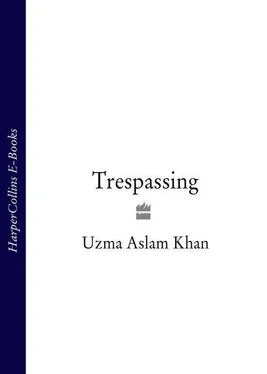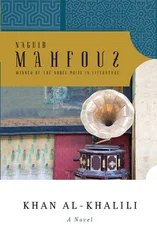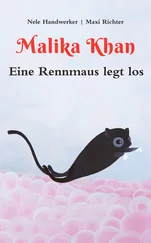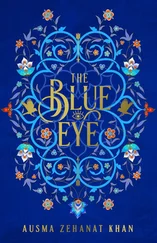What kind of reception would her daughter get in a country where people applauded their government for waging a war no less ruthless than in Vietnam? She’d been a part of the rallies in the ‘60s, in London — so her thoughts were taking her back there after all. She’d been witness to the outrage. But many who’d protested then would remain silent during the Gulf War. If ‘peace’ and the ‘people’s movement’ had been popular causes when Riffat was a student in London, the murder of hundreds of thousands of innocent Muslim civilians had nothing to do with either.
She straightened her back. Her neck and shoulders were heavy with the tension building inside her. She pressed a finger deep into the muscle just below her shoulder blade. Her scapula. She’d known someone once who liked to name her parts as he kissed them. No! She could not dwell on that.
Sighing, Riffat remembered a relative had called last night, and she’d promised to phone back but hadn’t. It was a miracle anyone still tried to reach her. She’d made too many angry too many times with all the phone calls never returned, weddings unattended, deaths only hastily condoled. The truth was brides and corpses made her cry — not crocodile tears but real ones.
When Dia had told her of his death, after snapping at the poor child she’d slipped into the bathroom and wept as if it were 1968 again. Wept more, she knew, than his wife would. It should never have ended this way. Two youths who’d fallen in love in another land ought to have returned to their own to cement that love. Love knows no boundaries. No geographic, man-made perimeters. That’s how she’d tell it if she ever had to. Make a story of it. Pretend it happened to someone else. Let Dia jot it down, slip it into her Book of World Fables along with all her other tales of beginnings. Read it up in the mulberry tree, adding her own twists, so it metamorphosed into something other than what it was: the story of Dia’s own beginning.
Riffat Mansoor was exhausted when Sumbul met her by the silkworm trays, took her hand, led her into the shack, made her a cup of green tea and offered painkillers for her ulcers. Riffat thanked her, adding that the business would have completely dissolved if it weren’t for Sumbul’s family. She, her cousins, her father — what comfort hadn’t they provided, especially in the years following Mansoor’s death?
Sumbul smiled, waiting till Riffat had drunk the soothing leaves. Then she said she’d something urgent to confess.
APRIL — MAY 1968
She’d been sipping coffee from a flask under the eaves of an old brick café, waiting for her bus, when she first noticed him: a tall, dapper man in a maroon scarf, with a smile that could fracture clouds. The scarf matched his large, amber eyes beautifully. One didn’t have to attend design school to notice, as the other women throwing covert glances his way confirmed.
The smile was for her, as he stepped aside to let Riffat on the bus first. All day she sketched impatiently, chewing her pencil stub, shading a poster for dog biscuits in hurried, clumsy strokes. Her professor snapped, ‘No self-respecting terrier would eat that!’
In the following days, the elegant man repeated the moves — the bow, the beam, the arm extending to usher her on without once brushing her jacket. At last she touched her curls and tossed him a sassy, we’ll-see-about-that look, and then they both laughed while the bus slid away.
He invited her to eat with him in his tiny hostel room. Lunch was arranged on a rickety desk full of medical books he picked up and placed carefully on the already cluttered floor. An old towel functioned as the tablecloth. He was entirely unembarrassed by his modest means and this moved her.
The daal tingled with heaps of tamarind brought from home. ‘Hyderabadi style,’ he said. ‘The way my mother made it.’ There was rice, a small salad, and a slab of Cadbury’s milk chocolate for dessert. And throughout, his easy, cheerful manner and boundless hospitality as he spooned most of the meal onto her plate because if she ate well he’d cooked well. No man from her household had ever offered a woman his share, let alone prepared it. She’d not thought Pakistani men did that.
In the musty room lit by wavering candlelight, he watched her eat and said, ‘We wouldn’t have met if we hadn’t been waiting at the same stop.’ He touched her wrist under the cuff of her right shirtsleeve. Then he touched her chin, sliding his thumb along her jaw. He said she had the loveliest bones imaginable and that her curls enhanced them. Twisting a coil around his index finger he brought it forward, so it fell on the smooth shelf of her right cheekbone, just above the deep dip of her cheek. ‘This is called the zygomatic bone,’ he said. ‘If I ever have to remember that, I’ve only to think of you.’
In her lap, her fingers twitched. She thought herself too thin to be lovely and had always fought her mother to keep the hair short. ‘Hair could make up for the body you lack,’ her mother would argue.
Now here she was, fed by such a handsome man. And so tender too.
When at last she found the nerve to look up at him, she wanted it to be in the same sassy way she’d found earlier. No tears of gratitude. No violins. She wasn’t going to turn into the girl her mother wanted her to be. She stared him in the face and said, ‘I’ll leave you now. But the next meal is at my place.’
‘Let me walk you home.’
She was the wealthier of the two. Her father had land in Sindh and a flat in London, in the West End. They held hands and nobody looked. It wasn’t a shameful thing to do though her family would have said otherwise, even as they watched Shammi Kapoor plant famished kisses down Saira Bano’s zygomatic bone.
They walked to her flat via Goodge Street, for the names it rang with: Woolf, Orwell. He spoke of the irony of their schooling. He, the son of a rowdy journalist whose pen had fought the colonialists, was learning through them how to treat the wounded. His father said benefiting in this way was just. But he wasn’t sure. Was it equilibrium or a step back? Or could he really find a way to take it forward?
‘I understand the conflict,’ Riffat replied, speaking at length of studying textiles in a land that had stripped hers of the very plants she hoped to one day reintroduce, like indigo and catechu. ‘Yet it’s in these libraries that I’m learning what we’ve lost.’
How could they create peace from paradox?
She’d ask herself this often in the following years, particularly when training weavers descended from those whose thumbs the British had chopped off because they’d been too adept at turning fiber to tissue.
And particularly when marrying Mansoor.
In the following weeks, Riffat and Shafqat rendezvoused between rows of fiction in Foyle’s, nibbled Greek take-out in Russell Square, vowed never to let go of each other all the way from Bloomsbury to Soho. Dangerously enraptured, they began weaving a world around themselves, legs looped, breath knotting tighter with each moment. They’d grow as one or not at all. That was the pledge. It had to do with gravity. It was the only natural way to mature.
Between curling up together in her one-bedroom flat, studying, attending classes and walking the city, they steeped themselves in the student movement pumping the streets. Riffat’s awakening in London was not merely of her own self, but of her place in a world eager to decide its future for itself. In Iran, the democratically elected Prime Minister had been ousted and the Shah affixed like a plug; in Guatemala, the CIA had engineered a similar coup and tried again in Cuba. And US-backed Israel occupied the West Bank and Gaza. Let the people choose! Che Guevara placards bobbed around Riffat as she held Shafqat’s hand and listened to speakers from around the world. A Pakistani journalist who’d sneaked into Hanoi and later given accounts of American atrocities at a War Crimes Tribunal, addressed them: ‘Until we own our own resources, we’ll never be free. And as long as the West keeps stealing the forests and minerals of the South and the East, we will fight!’ He spoke of the swindling of Congo’s wealth, of attempts to sink ever deeper into the Middle East. ‘See how the CIA overthrew Kassem in Iraq? It’s because he nationalized oil. They will always seek to depose any ruler who wants Iraq’s assets to stay in Iraq.’
Читать дальше
Конец ознакомительного отрывка
Купить книгу












